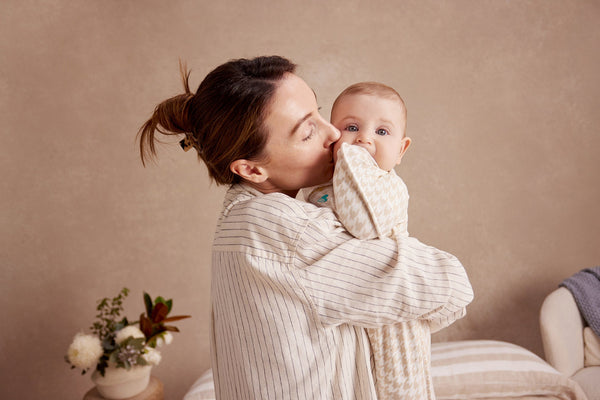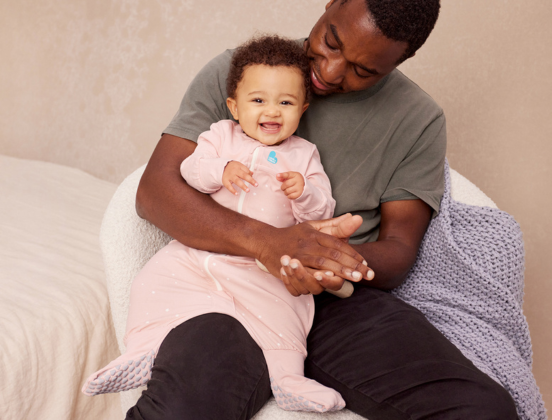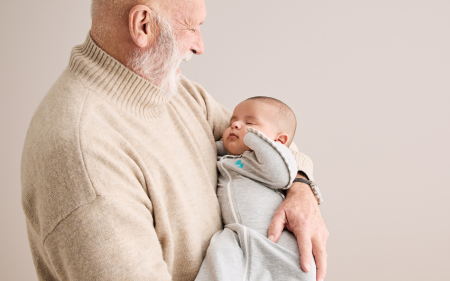What is a sleep cycle?
Our sleep cycles change as we grow and develop. A newborn’s sleep cycles are roughly 40 minutes but can vary anywhere between 20 to 50 minutes long.
A newborn baby’s sleep cycle is divided into two categories: REM (active sleep) and NREM (quiet sleep). In the first few months of a child’s life, their sleep is split evenly between the two. As they grow and develop, their sleep cycles mature, and they slowly begin to spend less time in REM sleep. Their sleep cycles slowly begin to look like an adult’s cycle, as they start to experience the three stages of NREM.
During REM (active sleep), your newborn will move around, open their eyes, cry, and breathe noisily. During the quiet phase of sleep, NREM, they will lay still, and their breathing will be more even. It is normal for a newborn to wake between sleep cycles. As they grow older, they will eventually learn to connect sleep cycles and self-settle in between, resulting in longer sleep.
How does adult and baby sleep differ?
Adult sleep looks very different to a baby’s sleep. One, it can feel like it's non existent and two, on average - adults sleep needs are between 7-8 hours a night in a single block of time (child willing). While a baby needs up to 18 hours of sleep every 24 hours which is broken up into multiple periods of time. Here is a quick snapshot as to why the sleep is so different:
Newborn sleep cycles
- The newborn sleep pattern is unique. In the first few weeks, a newborn baby will sleep most of the time, with many sleeping 14-20 hours a day in two to three-hour bursts. Below, find two key reasons behind the newborn sleep cycle.
They haven’t established a circadian rhythm
- Newborn babies don’t know the difference between day and night. It takes time for their body clock to kick in and until then, they will not understand when it’s time to sleep vs time to be awake. Letting a little more light into their naptime during the day can start to help build this rhythm for them.
They have a small stomach
- When a child is born, their stomach is around the size of a marble and by day 10, it’s already the size of a golf ball. To support this, they need to eat little and often to match their ever growing tummies.























